A large chital stag headed rapidly in my direction pursued by the pack. My sudden presence disrupted the hunt, the stag got his chance to escape, and the disappointed dogs yapped and snarled at me from a distance.

I have always had mixed feelings about the Dhole Cuon alpinus, or Asiatic wild dog. My first encounter was on a cold and rainy evening in the 1960s, when my father, E. R. C. Davidar, a lawyer, shikari and later a wildlife conservationist, first brought us to a property in the northern foothills of the Nilgiris, that he and my mother later purchased and named ‘Cheetal Walk’. A pack of wild dogs were dismembering a chital near an old disused well. It was a painfully fascinating but unforgettable sight.
THE SHIKARI’S COMPETITOR
Dholes are cooperative hunters and breeders. They hunt as a pack coordinating their movements by whistles and usually bring down prey larger than themselves, devoured quite rapidly, sometimes while still alive. The British hated them, terming them “vermin”. Fletcher (1911), a planter in the Nilgiri-Wayanad, describing them as “crafty, untiring, cruel and relentless as fate”, wrote, “the wild dog is the curse of the country.” Lt. Col. Phythian-Adams, then Honorary Secretary, Nilgiri Game Association (later renamed Nilgiri Wildlife and Environment Association), called them ‘the perfect swine’ and unleashed a war on them. A bounty was placed on their heads and many were massacred. This was probably because they were rivals to the ubiquitous shikaris of yore.
This story is from the August 2019 edition of Sanctuary Asia.
Start your 7-day Magzter GOLD free trial to access thousands of curated premium stories, and 9,000+ magazines and newspapers.
Already a subscriber ? Sign In
This story is from the August 2019 edition of Sanctuary Asia.
Start your 7-day Magzter GOLD free trial to access thousands of curated premium stories, and 9,000+ magazines and newspapers.
Already a subscriber? Sign In
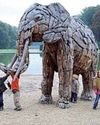
Why Children Are Needed To Help Save The World
On my very first day in India, I encountered many marvelous new customs not practiced in the United States, my home country. But the most curious by far involved trees. Here and there, alongside the roaring streets of Mumbai were rings of marigold wreathed around twisting banyan trunks like dried rays of afternoon sunlight…
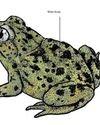
Who's Who?
Fact: all toads are frogs, but not all frogs are toads! Let’s unpack this...
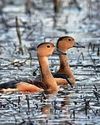
The Sea Raptor
The White-bellied Sea Eagle Haliaeetus leucogaster is one of the most common raptors along the Indian coastline. Nevertheless, the sight of this soaring, broad-winged, white and black bird of prey is nothing less than majestic
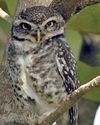
Bringing Up Bob Hoots.
While we were visiting a friend’s farm in the village of Yelachetty, near Bandipur Tiger Reserve, we found Spotted Owlets nesting on the tiled roof… and one of the chicks on the kitchen floor!

Yala, Land Of The Leopard
Yala is not only Sri Lanka’s second-largest, but also the most-visited national park in the island nation.
The Wizards Of Oz!
Australia is not only a country, but also a continent. The land down under, cut-off from the rest of the world has an abundance of unique species of native animals, birds, reptiles, insects and plants.
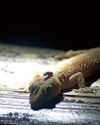
Scales & Tails
I was really excited and looking forward to the workshop on reptiles and amphibians at Nature’s Nest in Mollem, Goa, between June 24 and 26, 2017. It was my opportunity to meet renowned herpetologist Varad Giri.
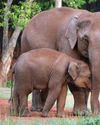
Big, Brilliant And Endangered
When one thinks of elephants, the first word that probably comes to mind is BIG! But elephants, while they may be the largest creatures on land, are not just big and powerful, they’re wise and sensitive as well. Recent scientific studies have established that they are among the most intelligent animals in the world.
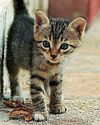
Earth Manners
Everyday habits matter! Let’s be kind to the planet, animals and ourselves!
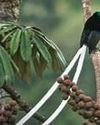
World Scan
CHINA’S IVORY TOWNAn explosive investigation by the Environmental Investigation Agency has revealed how criminal gangs originating from an obscure town in southern China have come to dominate the smuggling of ivory tusks poached from African elephants.